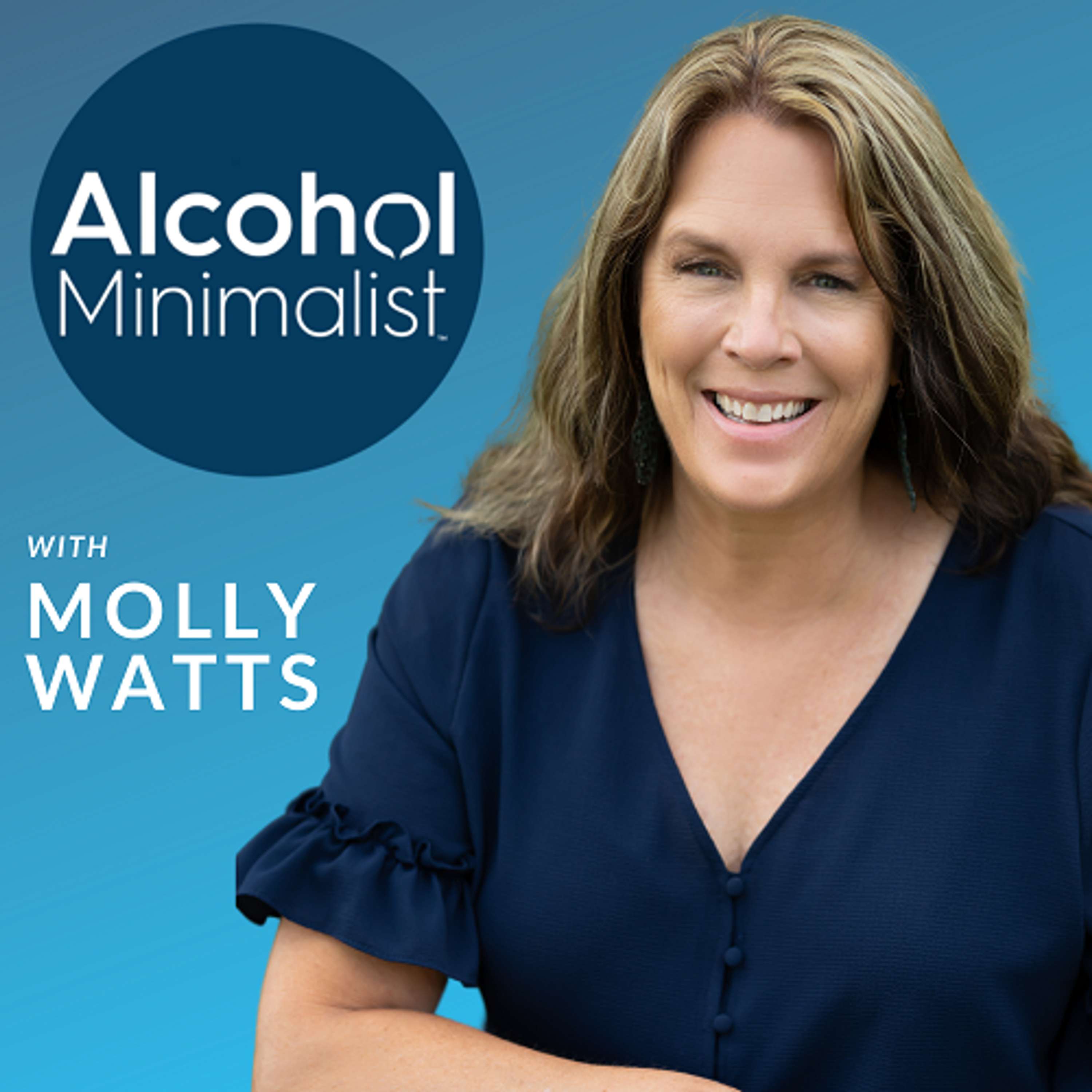
Alcohol Free for 40 with Molly Kimball

Alcohol Minimalist: Change Your Drinking Habits!
Shownotes Transcript
This week on the show I'm joined by dietician and journalist, Molly Kimball. Molly lives in New Orleans and is highly involved in the community working to improve health and wellness. Working with a large health organization, Oschner, Molly has spearheaded two very successful initiatives in New Orleans including the Eat Fit program and Alcohol-Free for 40, which Molly and I discuss on this podcast.
She's also published a book on zero-proof cocktails called Craft which you can buy with a 20% discount (Promo Code AFF40) https://www.ochsner.org/eat-fit/craft-zero-proof)** **
Learn more about Molly Kimball and her FUELED podcast** here.** )
Join me in my "More Dry July" challenge and get 60 days free from Sunnyside, the mindful drinking app.Go to** **https://get.Sunnyside.co/molly) for more details.
Check out Just START: Smart Thinking and Real Tools to Change Your Drinking Habits www.mollywatts.com/start)
Buy Breaking the Bottle Legacy: How to Change Your Drinking Habits and Create A Peaceful Relationship with** Alcohol on Amazon**) or most online retailers.
Join my private FB group Alcohol Minimalists here: https://www.facebook.com/groups/changeyouralcoholhabit)****
Has this podcast helped you? Please leave a review wherever you listen to podcasts!
**Follow me on Instagram: @AlcoholMinimalist **
Have you grabbed your free e-book, "Alcohol Truths: How Much is Safe?" Get it here.)****
Low risk drinking guidelines from the NIAAA:
Healthy men under 65:
No more than 4 drinks in one day and no more than 14 drinks per week.
**Healthy women (all ages) and healthy men 65 and older:**No more than 3 drinks in one day and no more than 7 drinks per week.
One drink is defined as 12 ounces of beer, 5 ounces of wine, or 1.5 ounces of 80-proof liquor. So remember that a mixed drink or full glass of wine are probably more than one drink.
Abstinence from alcoholAbstinence from alcohol is the best choice for people who take medication(s) that interact with alcohol, have health conditions that could be exacerbated by alcohol (e.g. liver disease), are pregnant or may become pregnant or have had a problem with alcohol or another substance in the past.
Benefits of “low-risk” drinkingFollowing these guidelines reduces the risk of health problems such as cancer, liver disease, reduced immunity, ulcers, sleep problems, complications of existing conditions, and more. It also reduces the risk of depression, social problems, and difficulties at school or work.
If you' are unsure about whether or not you have alcohol use disorder, please visit the NIAAA) for more information.
** ★ Support this podcast ★) **